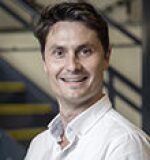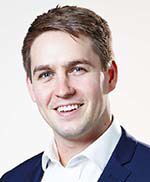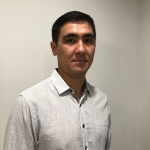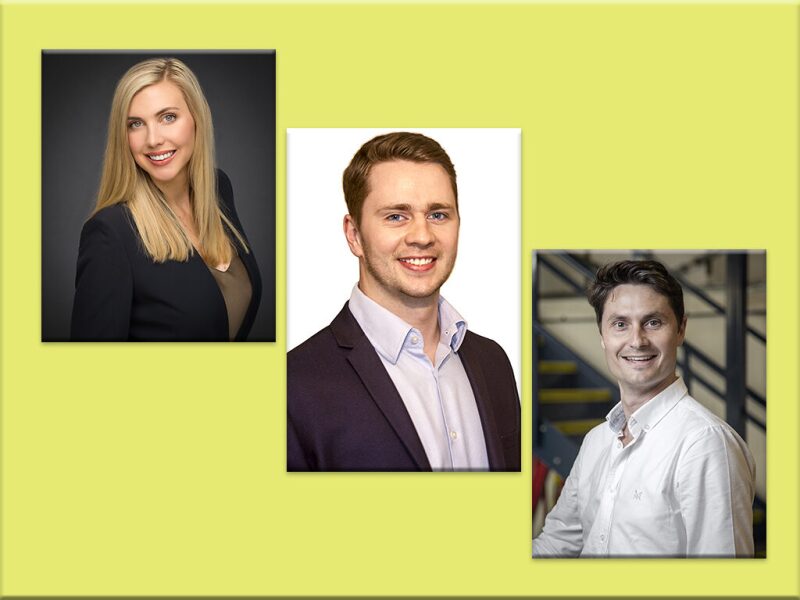In this article, we have interviewed business leaders in their 30s from the oil and gas industry, who run their own business. They share the challenges they have experienced, what led them to their careers, and how they are managing through the current situation of COVID-19 and low oil prices.

Ashley Zumwalt-Forbes, 29, is the president and cofounder of Black Mountain’s International ventures (battery metals and shale gas). She is listed in Forbes 30 under 30 for 2019. Zumwalt-Forbes graduated from the University of Oklahoma with a BS in petroleum engineering. She started her career with ExxonMobil as a drilling and completions engineer and worked her way up to manage an international shale exploration division. Although she has worked extensively around the world for a multinational corporation, she always wanted to be an entrepreneur and pursued an MBA at Harvard Business School. After a stint at McKinsey, upon graduation, she joined an oil and gas private equity portfolio company, Black Mountain, as a director of business development; from there, she launched Black Mountain Metals with the support of the Black Mountain group. She now serves as president of the organization.

Craig Usher, 31, is a cofounder of Well-Set P&A and research and development director of Centraflow. Upon graduation, Usher joined Schlumberger and worked in the cementing division until an opportunity came to work as a drilling engineer. Following the 2014-15 downturn, Usher joined his friend’s new business startup, Centraflow, a well construction company. He came on board with some ideas of his own. Together with the founders of Centraflow, they founded Well-Set P&A, a separate start-up company based on Usher’s concept that focused on plug and abandonment.

Tristam Horn, 32, is the founder and CEO of DeltaTek, a company specializing in the well construction sector, developing pioneering technologies for subsea projects. Horn started his career as a drilling engineer at BP in 2010 after graduating from Newcastle University with a master’s degree in engineering. He started DeltaTek in late 2015 and in the early days continued to work as a drilling engineer on a consultancy, ad-hoc basis.
How They Started the Business
A few months into working for Black Mountain’s oil and gas upstream unit, CEO Rhett Bennett tasked Zumwalt-Forbes with investigating a way to diversify the company’s revenue streams to take advantage of the global electrification trend. Six months later, she landed on a strategy to play it by starting a mining entity, dubbed Black Mountain Metals (BMM). She decided to chase Class I nickel sulfide, which goes into lithium ion battery cathodes, and copper, which plays a very important part in all electrical systems as a conductor.
“These metals are not just used for electric vehicles, they’re used in lithium ion batteries broadly; they are everywhere. Every time you see an announcement about renewable energy, you must have batteries alongside for when the wind is not blowing, and the sun is not shining,” Zumwalt-Forbes said.
After a global scan of opportunities, she identified some actionable opportunities in Western Australia and decided to pursue that lead. After raising around $75 million from investors to start the new company, Zumwalt-Forbes flew to Perth, facilitated the acquisition of a nickel-copper-cobalt mine called Lanfranchi in Kambalda, and 20% of a nickel mining company called Poseidon Nickel. That is how BMM was born.
Usher joined Centraflow in 2016, which was initially funded from personal savings. “You have an idea, and you know exactly what you want to do, nevertheless it takes so much longer than you think to accomplish those goals,” he said. Centraflow achieved the majority of the engineering work they wanted but overheads started to pile up with no revenue coming in. They had to reduce personnel back to just three while they found their first customers. The company was finding it difficult to get the first field trial of their technology until they joined The Repsol Foundation program, a 2-year arrangement where Repsol takes the company into an incubator scheme and provides some funding and mentors to try to accelerate the development of the innovative product. Under The Repsol Foundation program Centraflow has completed two trial wells—one onshore US and another offshore Malaysia.
Horn started his company after leaving BP in 2015. “I was a real fish out of water, straight out of an engineering role and into a ‘How do we commercialize a concept?’ environment,” said Horn. He joined an Accelerator course by Elevator, which he came to know through the Scottish Enterprise and Business Gateway. Accelerator brings together all kinds of entrepreneurs, from personal fitness training services to renewable energy concepts. This new environment gave him a good opportunity to canvas the business, understand how to approach the markets, and test the product idea to make sure there was a commercial appetite for what he was trying to deliver.
Receiving initial funding from Scottish Enterprise put him on the radar for other investors. But most importantly, it gave him the opportunity to build a team. “People don't want to do business with a person, they want to do business with people. Having a team is important because that is what you need to turn a smart concept into a commercial opportunity,” Horn said.
Horn mentioned the importance of having mentors at early stages of the company. “I had mostly done engineering prior to starting my company with very limited exposure to commercialization of technology. Having an opportunity to work with mentors, who understand the nuts and bolts of this journey I was embarking on, was essential.”
After about 18 months of working on his new venture, Horn was about to get his first trial. However, things did not quite go according to plan. “There are so many decision makers within a customer organization. One stakeholder might think that your offering and your way of thinking is the best thing since sliced bread but on the flipside of that, there’s often another stakeholder who wants to stick with the status quo.”
After this particular opportunity slipped, he had to re-think the financing of the business and was running out of money. Thankfully, with an opportunity to go back to consulting for a few months, he was able to put a bit more money into the business, keeping it afloat. “That gave potential investors the confidence that I was serious about my project. I think that’s what investors want to see... pain and determination to really make your dream a reality,” Horn said.
Selling the Business Idea
A large contact base allowed Centraflow to easily set up meetings with companies to present their products. Nevertheless, they were struggling to get their first trials, as no one wanted to take a risk. “In the oil and gas industry, everyone loves a silver medal, no one wants to run a new technology first,” said Usher. Through The Repsol Foundation they could work directly for a company that was looking to take a manageable risk in order to benefit from new technology becoming commercially available.
Talking about the funding shocks, Usher said “Everything is great when a company has good funding and a large R&D budget. You start developing something that has all the bells and whistles, using high-end materials, etc. Then suddenly getting the pain of running out of money makes you rethink what you are doing development-wise, so you start looking for more efficient processes. We have simplified the tools and brought the unit cost down, while keeping the quality. Now looking back, it’s the best thing that could have happened to us.”
Horn continued: “One of the things I learned relatively early in this journey is to avoid being the traditional knocking-on-door salesman. Be genuine and give the customer the opportunity to feel a little bit more ownership over your product. One of our early customers asked us to change the activation mechanism for our SeaCure system. Doing that showed our flexibility and willingness to work with our customers.
I have found that allowing people to come to their own conclusions about the severity of their pain points can really define the whole success of the conversation. If a potential customer does not regard your offering as a solution to their problem, then humbly allocate your resources elsewhere. Humility is paramount.”
Finding the Investors, Employees, and Partners
After acquiring Australian assets, Zumwalt-Forbes set up an office in Perth and created a battery metals mining platform. The team in Perth, which Ashley helped put together and is very proud of, helped overcome the challenges of a startup. As a young manager in a foreign country, Zumwalt-Forbes found that managing people is something she was good at and enjoyed a lot. “People are still people regardless, oil and gas or mining, so that was an easier transition to make.”
Horn found his two business partners through the Scottish Enterprise High Growth Ventures experience: “That was an intense 18 months of kissing a lot of frogs before finding a couple of princes. I met a lot of different prospective suitors before homing in on two—Dave Shand and Steve Bruce,” Horn laughed.
However, businesses also need employees. “The business was not going to grow with the CEO being offshore running every job. We needed to move quickly toward staff running the operations, but initially it was a challenge to recruit into the company because we were so early in our journey.” Eventually, he was able to find the right candidates through his network. Having a rapport with an individual is critical to placement, and Horn said that a majority of his staff have worked with somebody else within the team in the past.
BMM has been well placed with the commodity price drop, however, with coronavirus pandemic, operations were interrupted. Nevertheless, Zumwalt-Forbes and her team believe that metals prices are going to increase once consumption normalizes. BMM has a team of 20 people in Australia and a full team on site who are busy preparing the mine for operation. Zumwalt-Forbes is excited about the future of BMM and Black Mountain Exploration and sees possible expansion in the future.
Usher said, “With COVID-19 nothing much has really changed for us because we have been used to working on our own and in different locations, with most of our communication through email and phone. We had to put a hold on some of the physical testing that we were doing in Norway. However, being restricted to our homes actually allowed us to concentrate more on the detailed design of the tools. We ended up completing designs ahead of schedule and started manufacturing, so in some respects, it was a benefit for us. As engineers, we love problem solving and these times present new problems to be solved.”
“COVID-19 has had a massive impact on DeltaTek business. However, we are not standing still. There has been a lot of new product developments. One of the benefits of this situation is that customers tell us that they have more time to look at new technology that can optimize their operations, as a lot of their work scopes are postponed. DeltaTek is truly embracing technology, doing video conferences with new and established customers all over the world. A 1-hour presentation very quickly turns into a full afternoon discussion because there is just so much interaction, engagement, and the customers have time now.”
No matter how bad the situation may seem, there is always light at the end of the tunnel. Stories of these young entrepreneurs proves that it is possible to start businesses in downturns and make them successful despite having obstacles that seem to be impassable.

Adam Miszewski is the global operations manager for AnTech and oversees the planning and execution of global drilling operations. He is also active in developing and integrating operations with strategic partners for successfully executing coiled tubing drilling projects for the company. After graduating from Imperial College London, Miszewski began his career at BP as a drilling engineer delivering offshore wells in the North Sea, UK. While in Aberdeen, he was an active member of the SPE Aberdeen Section Young Professionals Committee.

Marat Seitimov is a sales engineer with Antech. He works with operators and service companies to provide solutions to revitalising brownfield and late-life oil and gas assets.

